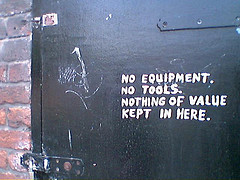Mar 8, 2011 2
Joe Lovano, Regattabar, October 14, 2010
 Das Ganze ist das Unwahre. – Theodor Adorno
Das Ganze ist das Unwahre. – Theodor Adorno
It was some months ago now that I saw Joe Lovano and the Us Five band (pianist James Weidman, bassist Peter Slavov, who was filling in for the suddenly famous Esperanza Spalding, and drummers Otis Brown III and Francisco Mela) at the Regattabar. At the time I thought they were the best jazz band I’d ever seen. Why?
First of all, they had the most beautifully organic sound with a wild spaciousness to it. It was also like being in a bohemian atelier or beat workshop with the music bouncing and reflecting off paintings and posters, bottles and tables, windows and alleys. Or, at times, like being on a pirate ship or a fishing boat. Wood. Space. Heat. Earth. Light. Etc.
Second of all, they were playing, with real mastery and joy, also, in an early sixties/late fifties style that was disciplined and structured (in like a Mingus way) and, at the same time, casually intense and free (i.e., played with a kind of abandon verging on the wanton).
Third, there was Lovano himself. With his hat and his sunglasses and his soul patch he was the textbook jazz cat—really archetypical, man. He’s got a warm, sculpted tone, has a concept that’s dense, mellow, focused, and figured, and sometimes goes for the raggedy, fraying-into-madness sound of 1961-ish Trane (remaining, for all that, on the homage side of mimicry).


